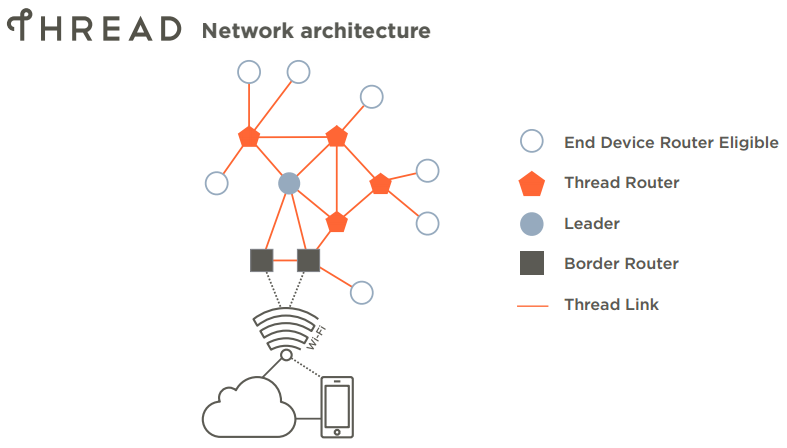Thread Group Launches Protocol Specification, Qualcomm Joins Board Of Directors
Get Tom's Hardware's best news and in-depth reviews, straight to your inbox.
You are now subscribed
Your newsletter sign-up was successful
The Thread Group officially launched its IPv6-based wireless networking protocol for low-power smart home devices. The final specification is now available, so companies making products for connected homes can start implementing the Thread protocol into their products.
The Thread protocol promises to be much more resilient than other wireless protocols because of its mesh networking capabilities, which allow somewhere between 250-300 different devices to connect reliably to each other.
It's also a low-power protocol built on top of the 6LoWPAN (IPv6 over low-power Wireless Private Area Network) protocol, which enables it to also connect directly to the Internet through an IPv6 address, but also consume very little power.
Thread devices are also secure by default, a critical feature considering that the Internet of Things could turn into an unmanageable "Internet of Threats" without these sorts of precautions before the products are even released on the market.
"Thread was designed to be the foundation of the Internet of Things in the home by allowing developers and consumers to easily and securely connect hundreds of devices within a low-power, wireless mesh network," said Chris Boross, president, Thread Group. "In the nine months since opening membership, more than 160 companies have joined the Thread Group, and now the group is launching the Thread technical specification, which has now completed extensive interoperability testing," he added.
As part of today's announcement, Qualcomm was also introduced as the Thread Group's latest member of its Board of Directors.
"When it comes to easily and securely connecting the smart home, the work of industry alliances like the Thread Group are essential," said Raj Talluri, senior vice president, product management, Qualcomm Technologies, Inc.
Get Tom's Hardware's best news and in-depth reviews, straight to your inbox.
The Thread Group will begin to certify connected home products that use the Thread protocol starting this September. In charge of the certification process will be Thomas Sciorilli, who will oversee whether the various Thread-enabled products interoperate properly and are secure out of the box.
The Thread certification will require companies to put a "Thread" label on their products, which will tell customers that the products have been certified for quality, security and interoperability.
The first chips to support the Thread protocol will come from ARM, Freescale and Silicon Labs. Millions of devices supporting 802.15.4 hardware are already on the market and will only require a software update to enable the Thread protocol. The first Thread-certified products should be available late this year.
Follow us @tomshardware, on Facebook and on Google+.
Lucian Armasu is a Contributing Writer for Tom's Hardware US. He covers software news and the issues surrounding privacy and security.
